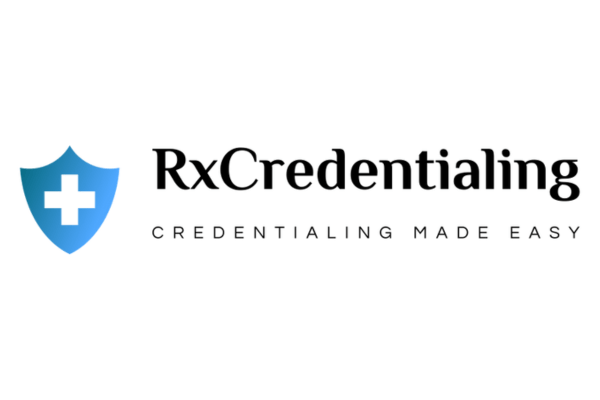Understanding the Complexity of ENT Medical Billing
Managing medical billing for ENT (Ear, Nose, and Throat) practices is intricate and constantly changing. With frequent updates to government regulations, handling billing internally can become overwhelming.
This complexity raises an important question: Should your practice continue managing billing in-house, or is it time to outsource to a specialized medical billing service?
Why Outsource Your ENT Medical Billing?
Outsourcing your ENT medical billing to Rx-Credentialing can significantly streamline your operations.
Our expert team manages the complexities of ENT billing, including procedures like sinus balloon dilation, allergy treatments, audiology, hearing aids, laryngology, nasal endoscopy, facial plastic and reconstructive surgery, head & neck, otology, and rhinology. By utilizing our services, you can benefit from:
- Enhanced Cash Flow
- 99% Claim Rate
- Minimized A/R Delays
- Fewer Claim Denials and Rejections
- Flexible EHR Solutions
- 24/7 Dedicated Support
Frequently Used ENT Billing Codes and Modifiers
ENT billing requires specific codes and modifiers to accurately document and charge for services. Common codes include:
- 31231: Nasal endoscopy, diagnostic, unilateral or bilateral
- 31237: Nasal/sinus endoscopy, surgical, with biopsy, polypectomy, or debridement
- 92557: Comprehensive audiometry evaluation
- 31575: Laryngoscopy, flexible, diagnostic
Modifiers are crucial in ENT billing to provide additional information about performed procedures. Frequently used modifiers include:
- -50: Bilateral procedure
- -59: Distinct procedural service
- -25: Significant, separately identifiable evaluation and management service by the same physician on the same day of the procedure or other service
Proper usage of these codes and modifiers ensures accurate billing and maximizes reimbursement.
Unique Coding Challenges in ENT Billing
ENT practices face unique coding challenges due to the specialized nature of the services they provide.
Each procedure, whether it’s a nasal endoscopy or a complex sinus surgery, has specific coding requirements that must be accurately documented.
Missteps in coding can lead to significant revenue losses and increased claim denial rates.
How Revenue Is Lost in ENT Practices
Revenue loss in ENT practices often stems from incorrect coding, missed charges, and high claim denial rates.
Inaccurate or incomplete documentation can lead to coding errors, resulting in denied or delayed claims.
Additionally, failing to follow up on denied claims can result in significant revenue loss.
Many practices also experience revenue loss due to under-coding, where services are not fully billed, or over-coding, which can lead to audits and penalties.
The complexity of medical billing codes and frequent regulatory changes pose challenges for practices, leading to mistakes that impact the bottom line.
How Rx-Credentialing Improves Revenue Cycle Management
Rx-Credentialing addresses these challenges by offering specialized ENT billing services that streamline the entire revenue cycle management process.
Our dedicated billing specialists ensure that all services are accurately coded and billed.
By leveraging our proprietary billing rules engine, we identify potential issues before claims are submitted, significantly reducing error rates and claim denials.
Regular performance reviews and practice improvement implementations help keep your billing processes optimized.
We provide detailed reports and analytics to track key performance indicators, allowing you to see where improvements are needed and how effectively they are implemented.
This proactive approach ensures that your practice maximizes revenue while minimizing administrative burdens.
The ENT Billing Process at RxCredentialing
Our process begins with a thorough analysis of your revenue cycle management to identify gaps and financial opportunities.
We then configure your software and workflow to enhance collections.
An expert in ENT coding and billing is assigned to your practice to ensure smooth operations.
Our proprietary billing rules engine ensures low denial rates, and regular performance reviews keep your practice optimized.
We manage all aspects of ENT billing, including complex procedures like sinus balloon dilation, allergy treatments, and facial plastic surgery.
This comprehensive approach ensures that every facet of your billing process is managed efficiently and effectively.
Benefits of Partnering with RxCredentialing
Partnering with RxCredentialing means leveraging industry expertise to improve your practice’s financial health.
ENT practices using our services experience fewer denials, reduced management overhead costs, increased practice profits, and greater collections.
Our workflow automation saves time and resources, allowing your staff to focus on patient care.
We work based on results, not promises. Our team is dedicated to ensuring that you get paid correctly the first time, every time.
The peace of mind that comes from knowing your billing is in expert hands allows you to concentrate on what you do best – providing exceptional care to your patients.
Key Benefits:
- Increase Practice Revenue
- Increase Charges
- Decrease Rejections
Comprehensive ENT Billing Services
At Rx-Credentialing, we provide a variety of services tailored for ENT practices:
- Dedicated ENT Billing Specialists: A specialized team is assigned to your practice, ensuring accurate and timely payments.
- Proprietary Billing Rules Engine: This innovative tool identifies potential issues before claims are submitted, reducing errors and rejections.
- Proven Low Claim Denial Rates: We maintain one of the lowest denial rates in the industry.
- Enhanced Billing Workflow: Our best practices and advanced workflows maximize revenue and expedite collections.
- Monthly Performance Reviews: Regular evaluations and practice improvement implementations keep your practice on track for success.
Comparing ENT Billing to General Medical Billing
Specialized Knowledge and Expertise
ENT billing requires specialized knowledge of ENT-specific procedures, terminology, and coding. Billing for services like sinus surgeries, audiology tests, and allergy treatments involves unique codes and modifiers that are not typically encountered in general medical billing .
General medical billing involves a broader range of medical services across various specialties, which may not require the same level of specialized knowledge as ENT billing.
Complexity of Procedures
ENT billing involves more complex and varied procedures, such as nasal endoscopies, laryngoscopies, and facial reconstructive surgeries.
Each of these procedures has specific coding requirements that must be accurately documented for reimbursement .
While general medical billing also includes complex procedures, the variety is less specialized, and the billing processes may be more straightforward.
Use of Specific Codes and Modifiers
ENT billing utilizes specific codes (e.g., CPT codes for sinus balloon dilation or comprehensive audiometry) and modifiers (e.g., bilateral procedures) that are unique to ENT practices.
Proper application of these codes is crucial for accurate billing and maximizing reimbursements .
General medical billing uses a wider range of codes applicable to various medical fields but may not require the same level of specificity as ENT billing.
Claim Denial Rates
ENT billing typically experiences higher claim denial rates due to the complexity of procedures and coding.
Special attention is needed to ensure that claims are correctly submitted to minimize rejections .
While claim denials can occur in general medical billing, they may not be as frequent or complex as those in ENT billing, given the broader nature of services provided.
Revenue Cycle Management
ENT billing often requires tailored revenue cycle management strategies to address the specific challenges faced by ENT practices, including managing high volumes of specialized claims and ensuring compliance with regulations specific to ENT services .
General medical billing employs more generalized revenue cycle management practices that may not address the unique challenges faced by specialized practices like ENT.
Technology and Tools
ENT billing may utilize proprietary billing tools and software specifically designed for ENT practices, which can include features like automated coding checks and performance analytics tailored to ENT services .
General medical billing generally uses more standard billing software that may not have the specialized features needed for specific medical disciplines.
By understanding these differences, ENT practices can better appreciate the value of specialized billing services that cater specifically to their needs, ultimately leading to improved efficiency and revenue.





